Qantas and Airbus have announced a AUD$200 million ($140m), five-year partnership to expedite production of sustainable aviation fuels in Australia by investing in local fuel and feedstock initiatives. The airline has also revealed “encouraging discussions” with the country’s newly-elected federal government to support a transition of the aviation industry to low carbon fuels. The Australian Sustainable Aviation Fuel Partnership was signed by Qantas Group CEO Alan Joyce and Airbus CEO Guillaume Faury ahead of the IATA AGM in Doha, at which decarbonisation of airline operations is a key issue. Qantas has committed to using 10% SAF in its overall fuel mix by 2030 on a journey to net zero carbon emissions by 2050. Currently there is no SAF available in Australia, the airline’s home base and largest market, although the airline is using SAF on flights from London, reports Tony Harrington.
“This investment will help kickstart a local biofuels industry in Australia and hopefully encourage additional investment from governments and other business,” said Joyce, but warned: “Without swift action, Australia is at risk of being left behind.”
Faury said the use of SAFs would be a key driver of cleaner air transport, but added: “We can’t do this without viable industrial systems to produce and commercialise these energy sources at affordable rates and near to key hubs around the world. This is especially true for a country like Australia, which is geographically distant and highly reliant on aviation to remain connected, both domestically and internationally.”
Qantas now uses 15% SAF on its flights from London Heathrow direct to Australia and Singapore, and from 2025 has committed to use 20 million litres of SAF per year on its flights from the US west coast gateways Los Angeles and San Francisco. The airline has also foreshadowed further deals in other international markets. However, it has expressed frustration that there is no commercial scale SAF production in Australia, from where it says millions of tonnes of feedstock including canola and animal tallow are exported each year to support SAF projects elsewhere.
Because of its global scarcity, SAF is around three times the price of conventional aviation fuels and will only become affordable if large scale production drives prices down. Many other markets are progressing SAF development, among them fellow Asia-Pacific nations New Zealand, Singapore, Malaysia, Japan and South Korea, but so far Australia has not followed.
“The use of SAF is increasing globally as governments and industry work together to find ways to decarbonise the aviation sector,” said Joyce. “It makes a lot of sense for us to put equity into an industry that we will be the biggest customer of. With this investment, Qantas and Airbus are putting our money where our mouth is and betting on the innovation and ingenuity of Australian industry. We’re calling on other companies and producers to come forward with their biofuel projects.”
Joyce also turned up the heat on the new Australian government to support local SAF development, coinciding with its decision to increase from 28% to 43% the nation’s greenhouse gas reduction targets for 2030. “The aviation industry needs the right policy settings in place to ensure the price of SAF comes down over time so that the cost of air travel doesn’t rise,” he said. “We’ve had some encouraging discussions with the incoming government, given its strong focus on emissions reduction, and look forward to that progressing.”
The Qantas-Airbus sustainability initiative, which flows from the airline’s recent commitment to acquire up to 134 Airbus A220 and A320-family narrowbody jets over the next decade, as well as a fleet of ultra-long range A350-1000 widebodies for nonstop ’Project Sunrise’ flights between eastern Australia and both London and New York. The new jets collectively are expected to cut the airline’s fuel consumption and carbon emissions by up to 25%, and have already been certified to operate with a mix of up to 50% SAF.
US engine manufacturer Pratt and Whitney, whose GTF engines will power the new narrowbody fleet, is also a participant in the green investment project, which includes AUD$50 million already committed by Qantas in a partnership with Air bp. As well, Qantas recently signed a memorandum of understanding with the Australia and New Zealand Banking Group and Japanese oil and gas exploration company Inpex Corporation to evaluate a project in Western Australia through which low carbon renewable biofuels would be created through harvesting and processing of native biomass crops and selected agricultural waste residues.
The airline has already commenced discussions with major corporate travel customers to gauge their interest in SAF offsets, or the purchase of SAF proportionate with the emissions generated by the air travel of their employees. Such a programme could also be expanded to also enable individual travellers to offset their flight emissions, potentially before the end of this year.
The Qantas-Airbus initiative was quickly welcomed by the industry group Bioenergy Australia, convenor of the Sustainable Aviation Fuels Alliance of Australia and New Zealand (SAFAANZ), an advocacy group of which Qantas is one of 22 members. Among the policies it has advocated are an initial 2.5% SAF blending mandate in Australia, rising to 3% by 2030.
Photo: Qantas Airbus A321XLR


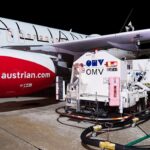
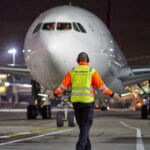
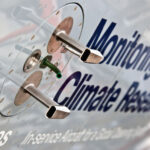


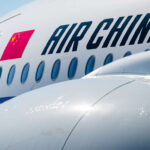
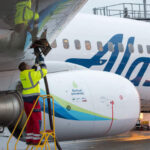
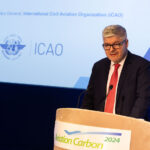
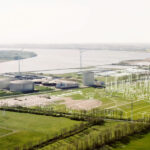
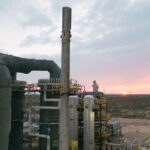

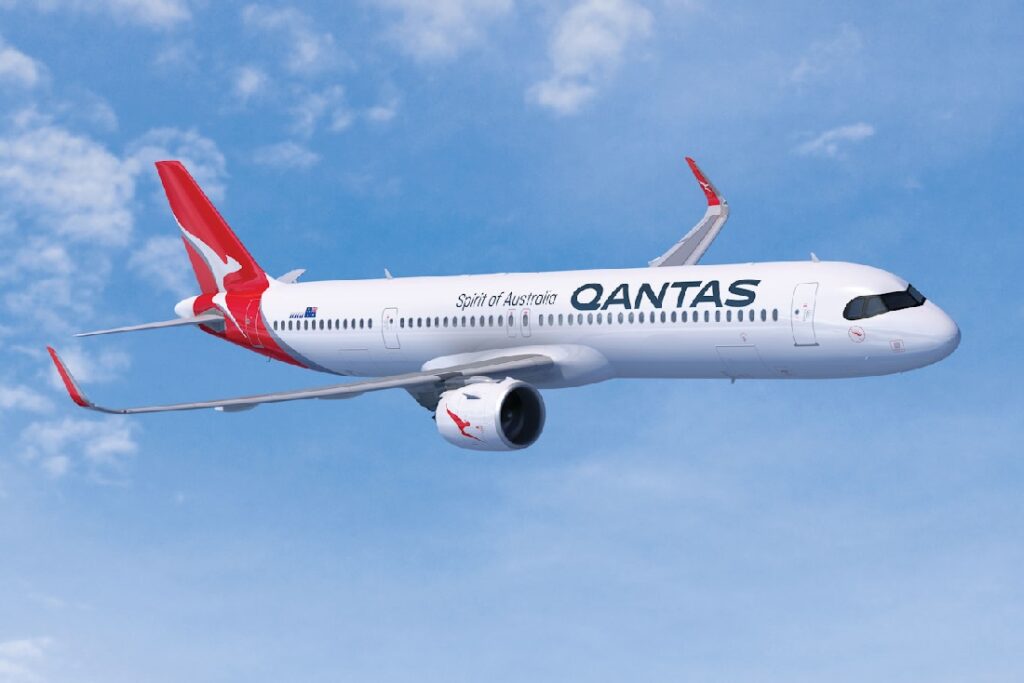

More News & Features
Progress on decarbonising the airline sector has been slow this year, says IATA chief
EASA releases status report on Europe’s SAF production and readiness to meet blending targets
Commentary: China’s fair and equitable solution to civil aviation’s climate challenge
New partnerships formed to drive e-SAF production in Nordic markets
IAG continues to go big on e-SAF as it inks 10-year offtake agreement with Infinium
US on the pathway to achieving its 2030 SAF Grand Challenge target, says DOE report